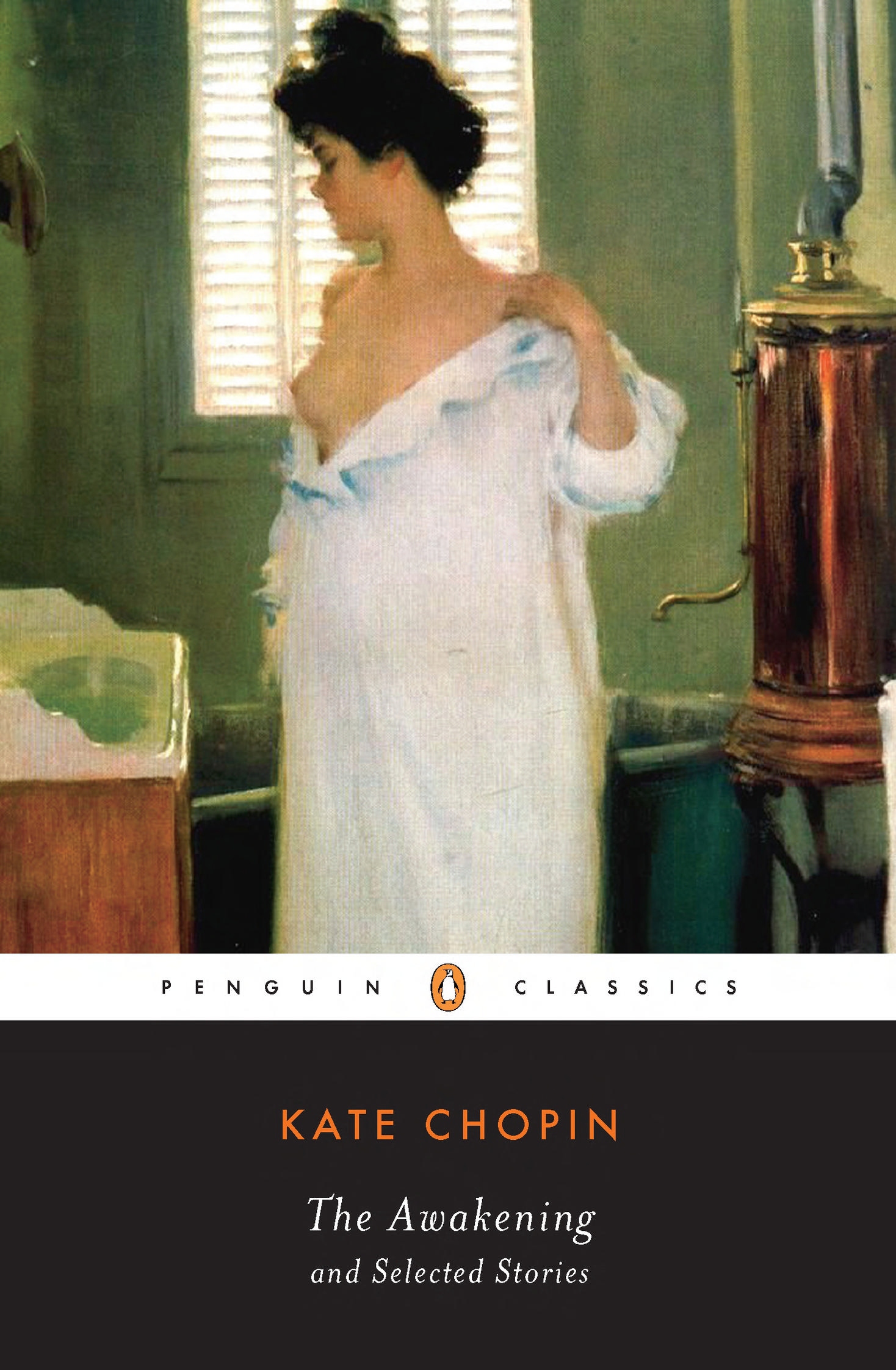‘In short, Mrs. Pontellier was not a mother-woman.‘
Edna Pontellier est-elle un être excentrique ? Dès les premières lignes, Kate Chopin dépeint un univers qui la caractérise comme telle sans nulle ambigüité : femme tombée dans l’institution du mariage, étrangère parmi les francophones, étrangère à ses pairs, femme étrangère à elle-même. Son singulier individualisme est généralement toléré en raison de son altitude sociale au sein de la communauté où elle évolue. Elle sait qu’elle est différente, cela lui vient de l’intérieur mais elle ne peut pas en saisir le sens. Elle aime ses enfants, et pourtant, ne peut leur consacrer sa propre existence. Elle respecte son mari ; mais elle lui désobéirait sans l’ombre d’un doute si elle s’en sentait le désir, la pulsion. Comme le titre l’indique, il s’agit de l’histoire d’une femme qui s’éveille à elle-même, qui réalise progressivement que tout ce qui la guide et qui ne peut être exprimé en mots, est la simple conscience d’exister en tant que femme, d’exister d’une vie qui ne pourrait se définir au travers des autres.
Le personnage d’Edna demeure mystérieux tout au long du roman. Elle est silencieuse, tranquille, et très languissante : elle pense, avant tout. La liberté lui vient par l’esprit. Elle donne l’impression d’être spectatrice de sa vie. Le rythme de la narration est hypnotique, une poupée indolente se voit animée au fur et à mesure des pages qui se tournent. J’ai terriblement aimé la modestie, la lenteur de cette mise en mouvements, le portrait d’une unvie domestique et statique, et le fleurissement d’une seconde jeunesse. Nul reproche, seul le témoignage d’une femme vivant loin des devoirs auxquels la société vise à la confiner. La force de The Awakening vient de cette prose poétique qui accomplit l’inexprimable : l’acte de regarder vers soi.

Version originale en anglais
‘In short, Mrs. Pontellier was not a mother-woman.‘
From the very beginning, there is no ambiguity about the eccentricity of the main character. Edna Pontellier is a woman who fell into the institution of marriage, a mere accident, nothing more than a social routine: alien among French speakers, alien among her peers, alien to herself. Her individualism is very odd yet it is generally tolerated since she is a prominent figure of the community. She knows she is different, it is something coming from the inside that she cannot figure out herself. She loves her children and yet cannot devote her life to their own. She respects her husband; but she would disobey him if she did not feel like it. As the title claims, it is the story of a woman who awakes to herself, who gradually understands that everything that guides her and cannot be expressed in words is the simple consciousness of existing as a woman, that is to say: a life that won’t find its meaning in the life of others.
The character of Edna remains somehow mysterious throughout the novel. She is silent, calm and very languid: she first thinks, freedom comes from her mind. She gives the impression of being a spectator of her life. The rhythm of the narrative is hypnotic, an indolent doll gets life. I really appreciated the modesty, the slowness of the process, the depiction of a static domestic non-life and the idea of a second youth. There is no reproach, only a testimony of a woman living apart from the duty society aimed at confining her to. The pull of the Awakening directly comes from its poetic prose that manages to set out something unspeakable: the motion of looking inwards.
Ref :
AL, 16-12-08.The Awakening. Honey and Pomme. From http://avaringo.free.fr
 Toi aussi, danse comme un païen !
Toi aussi, danse comme un païen !

